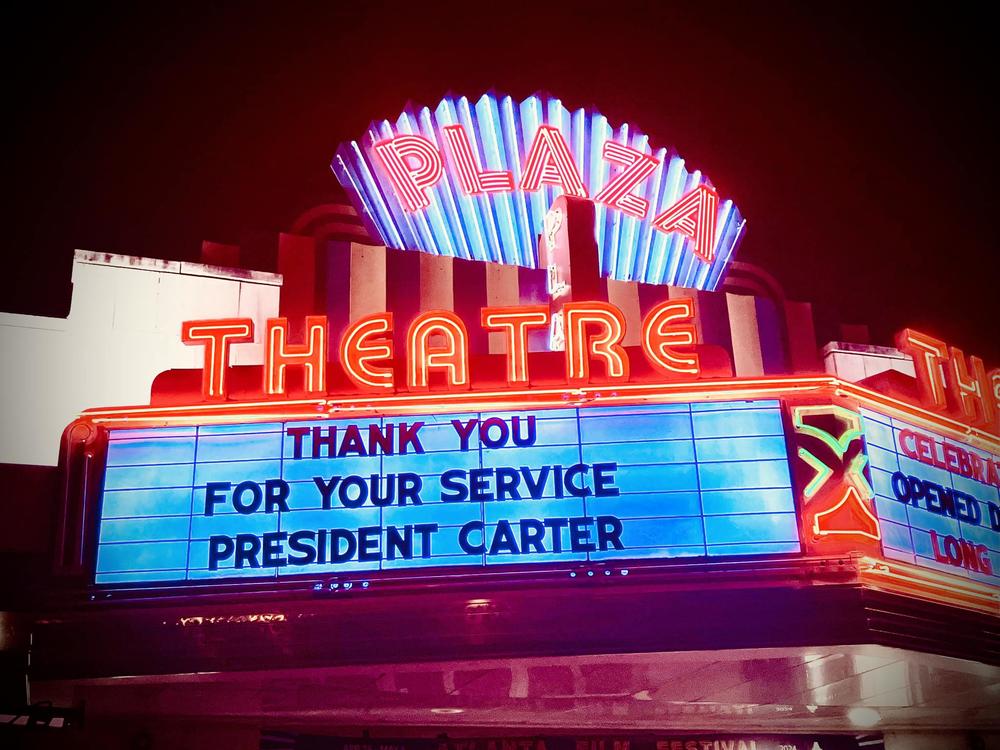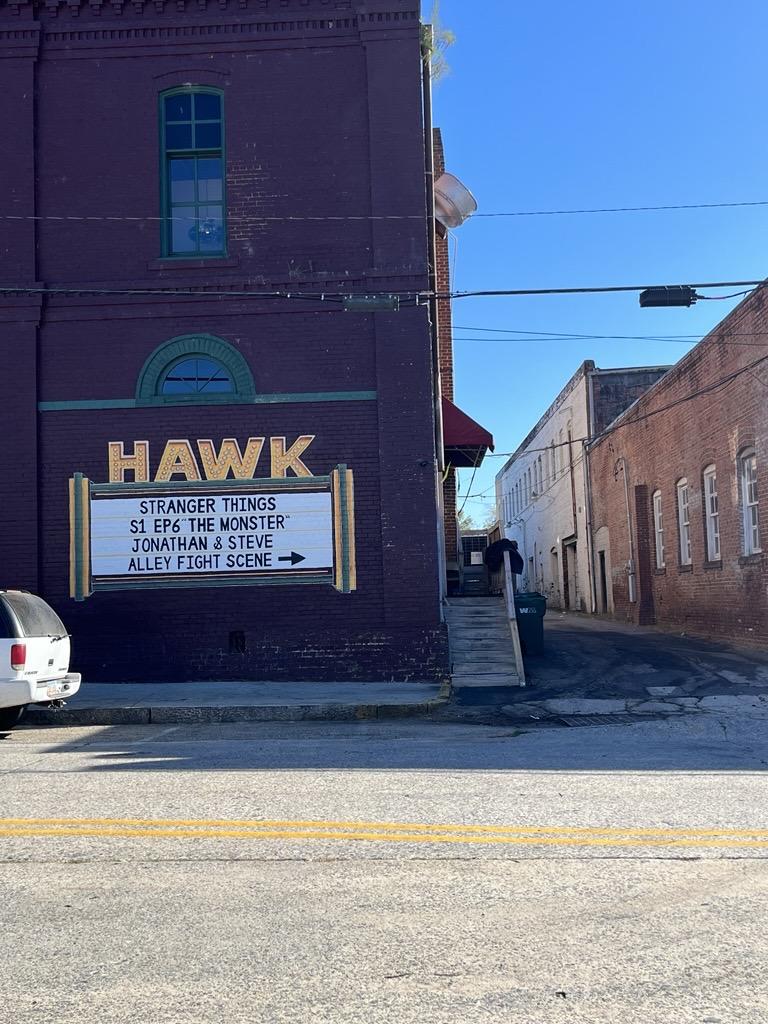
Caption
The marquee on Atlanta's Plaza Theatre memorializes former President Jimmy Carter on the day of his passing.
Credit: The Plaza Theatre/Facebook
LISTEN: Georgia’s film and TV industry can, in part, thank Carter for its booming success. GPB's Sofi Gratas has more.

The marquee on Atlanta's Plaza Theatre memorializes former President Jimmy Carter on the day of his passing.
Former President Jimmy Carter died at 100 years old late last month. Remembered as a humanitarian and prominent political figure, Carter was also a cultural icon for his support of the arts.
He also, like many of us, seemed to have loved the movies, and Georgia's booming film and TV industry exists in part because of Carter’s dedication to it.
Before Georgia became home to studios that churn out superhero movies, it was known for some more humble classics, such as Driving Miss Daisy, My Cousin Vinny and Smokey and the Bandit. But the film that first got Georgia that Hollywood recognition was Deliverance, released in 1972.
Despite some of the more traumatic plot points of the film, people seemed to resonate with the North Georgia scenery featured in the movie. They flocked to Rabun County, where the film was made, for whitewater rafting. That tourism on the Chattooga River is still alive today.
“It brought money to a very poor part of the state,” said Lee Thomas, director of the Georgia Film Office.
Thomas, hired to the film office in the 1990s, said when Jimmy Carter saw the effect film production had on Rabun County, he pushed for more.
“It doesn't require roads to be built or factories or anything,” Thomas said of the film industry. “It just kind of comes in and dumps money. … It's kind of like a microcosm of everything.”

Jackson, a small town between Atlanta and Macon, is one of many that has been able to capitalize on tourism from production. In this case, from the Netflix hit "Stranger Things."
Carter, who was Georgia governor at the time, created the Georgia Film Office the following year in 1973. The idea was to have a dedicated team that could coordinate with producers from all over the world.
Thomas said Carter was committed to making sure film projects went off without a hitch. The office was tasked with finding permits and scouting locations for all sorts of films.
“Maybe glaciers are tough for us," Thomas said, "but pretty much every location we can find.”
With years of practice, Georgia was already at an advantage when the state legislature passed generous tax credits for film and TV producers in the early 2000s, in an effort to compete with increasing industry incentives in other states. Thomas said people already recognized the state as film-friendly.
In the past decade, over 500 feature films have been shot in Georgia, and many more TV shows, including the hit Netflix series Stranger Things and Ozark. The state still offers one of the highest tax credits in the country, open to a variety of projects, with no annual cap.
Christopher Escobar of the Atlanta Film Society said Carter carried his love of movies to the White House. During his four year term, Carter watched something like 400 films, occasionally inviting staff, too. Records show he had varied taste, holding viewings for movies like Bambi, The Godfather, Young Frankenstein, and, allegedly more than once, Star Wars.
As the first new president since the Vietnam War, Carter also made history when he invited a highly decorated American filmmaker for a private screening of a soon-to-be released film about the conflict, Apocalypse Now.
“Francis Ford Coppola talks about how President Carter holds a special place in his heart,” Escobar said. In a condolence post on social media, Coppola called that screening a “high point” of his career.
As president, Carter would go on to double the federal budget for the National Endowment for the Arts, an independent agency that funds projects and aims to increase public access to the arts. He was also a music enthusiast, and wrote several books, built furniture and made some paintings of his own.
“There's both personal and official capacities where we see that President Carter's legacy in filmmaking and in the art form is going to be felt for generations,” Escobar said.
Escobar, who runs the historic Plaza and Tara Theatres in Atlanta, said now, even with a strong foundation, there’s a lot of uncertainty in how Georgia’s film industry will manage what’s coming. For the first time in awhile, film and TV production overseas is starting to outpace that in the U.S., driving concern over whether or not incentives like tax credits are enough.
There are other changes, too. When Jimmy Carter created the film office, more often than not, audiences could expect to recognize local spots on the big screen, and locals could expect big business from the arrival of production crews needing groceries, meals or even help on set from local contractors.
Thomas with the Film Office admits that some of that disappears with the rise of big-budget films, often filmed on sound stages and in indoor studios. But Thomas still celebrates the industry growth, and she says former President Carter did, too.
“Just like all of us, I think he was amazed at how big the industry had gotten,” Thomas said. “He was very proud of the work that he had done.”